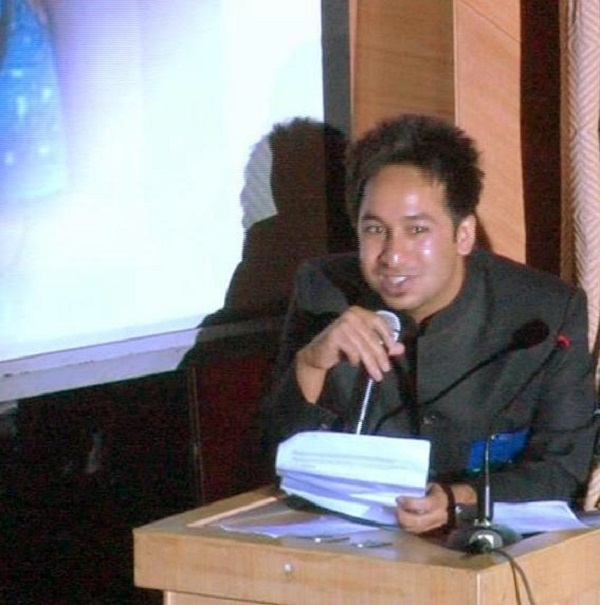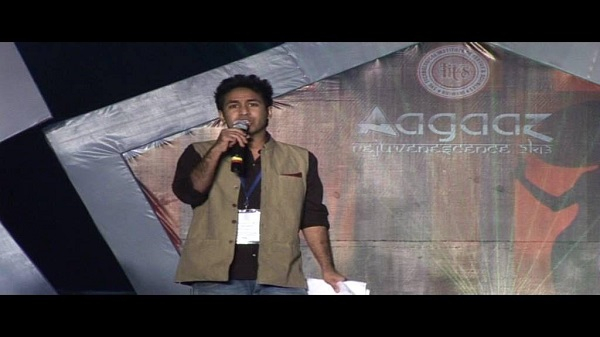 Varun Chawla, Senior Software Engineer at Visa
Varun Chawla, Senior Software Engineer at Visa
In a world where the word ‘expertise’ is often touted loosely, individuals like Varun Chawla stand out as fitting candidates for the term. As a Senior Software Engineer at Visa, the world's premier payment card services corporation, Chawla embodies excellence.
With exceptional credentials and achievements, Chawla has earned distinction as a master in his field. His journey to becoming a leading figure in global tech was not easy. It required years of dedication, commitment, and self-discipline.
Early Beginnings
Chawla's foray into IT began when his father brought home a computer in fifth grade. "My journey started then," he recalls. "I was already learning web development, but having a computer at home took my passion to a new level. I built personal web pages, experimented with music tools, and even uploaded a remix to YouTube in 2008."
From the not-so-advanced computer bought by his father, Chawla, through his studiousness and ability to apply himself, climbed the ladder of success gradually to become who he is today.
Problem-Solving and Motivation
Over the years, he has played various roles and achieved success on various fronts. Some of Chawla's notable works include reviewing top books on deep learning by a highly regarded tech publisher. A member of the Reviewer Board for the Computer Science & Engineering Research Journal, Chawla has reviewed over 27 research papers across five different IEEE international conferences and has also presented papers at different IEEE forums. He mentors underserved students for contributions to open-source projects, as well as mentors at the world's largest collegiate hackathon, CalHacks, in San Francisco.
He has also been invited to judge flagship hackathons at prestigious colleges like the Massachusetts Institute of Technology and Harvard University, as well as at nonprofit organizations like CalHacks. Additionally, he has been invited to judge multiple award shows in Leadership, Business, and Technology.
Chawla’s achievements extend beyond these. In the world of academia, he has recently received the Best Presentation Award at an IEEE international conference for his work in high-performance computing. He holds the prestigious titles of Royal Fellow and Fellow at multiple renowned research organizations—the highest levels of membership—and is also a Senior Member of IEEE.
While these awards and activities represent an interesting repertoire of achievements, they are just a handful of Chawla’s impactful career.
On what it takes to become a Software Engineer, Chawla does not relent in sharing nuggets of wisdom from his years of acquired knowledge with the young generation or anyone with the hope and resolve of embarking on a career in the IT space.
"What motivates me today is problem-solving," Chawla says. "Every project presents new challenges, and I love finding solutions that make an impact."
Becoming a Software Engineer
Chawla also generously shares his rich knowledge of web service development and its strategic role in the software engineering dispensation. He outlines the various elementary skills and knowledge that form the pillars for an accomplished career as a software engineer.
"First and foremost, you need a solid understanding of the fundamentals—programming, algorithms, and data structures are critical. Python or Java are excellent languages to start with. Beyond that, knowledge of system scalability, fault tolerance, and security becomes important, particularly in fields like fintech, where the stakes are high," he states.
He further explains, "Think of backend development as the backbone of an application. While users see the frontend, it’s the backend that handles the heavy lifting behind the scenes—managing databases, processing transactions, and ensuring smooth functionality. I specialize in building high-volume web services, which are the bridges between different systems. Whether it’s a simple login process or complex payment handling, backend development ensures everything runs efficiently."

"Frontend is where users interact with applications, so it plays a critical role in user experience. While the Backend ensures functionality, the frontend must be intuitive, responsive, and fast. Technologies like Single Page Applications (SPAs) and Progressive Web Apps (PWAs) have transformed web development by creating seamless, dynamic user experiences.
It’s a balance between aesthetics and performance. Core practices include writing clean, maintainable code, using version control like Git, and embracing agile methodologies for rapid development. Continuous Integration and Continuous Deployment (CI/CD) pipelines are crucial for quick, iterative releases. I also emphasize the importance of understanding data structures and algorithms—they affect everything from performance to scalability."
Future of Development
With the meteoric pace of global evolution, Chawla weighs in on the opportunities and challenges the technology and innovation space presents.
"The future is all about automation and personalization. We’re seeing tools that automate repetitive coding tasks, allowing developers to focus on more complex problems. Recently, we saw the release of Claude 3.5 Sonnet’s computer-use beta model, which allows it to interact with and manipulate computer environments. In web development, AI-driven personalization—like chatbots or real-time recommendations—will continue to grow, enhancing user experiences. On the backend, resource management and security will be more critical than ever, especially with the rise of cloud-native solutions."
Advice to Beginners
This riveting interview, which perfectly encapsulates the inspirational rise of Chawla from a young kid exploring a computer his father brought home to an authority in the software engineering dispensation, could not have concluded without him offering a piece of advice to beginners in the software engineering space.
"Focus on continuous learning. This field evolves quickly, so you need to stay up-to-date with new tools and technologies. Start by mastering the basics—programming, algorithms, and version control—and build from there. Get involved in the community by contributing to open-source projects, attending meetups, and networking on platforms like GitHub. And don’t be afraid of failure—each mistake is an opportunity to learn and grow."

Author: Richmond Hagan